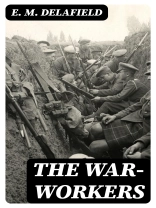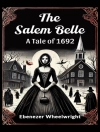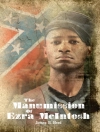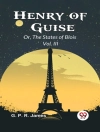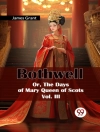E. M. Delafield’s 'The War-Workers’ is a poignant exploration of the impact of World War I on both the individuals who served and the home front. Delafield employs a semi-autobiographical style, rich in character development and social commentary, to depict the lives of women stepping into roles traditionally held by men. The narrative intertwines personal struggles with collective societal changes, emphasizing themes of resilience, identity, and the complexities of duty against the backdrop of a nation at war. The novel encapsulates the psychological turmoil of wartime, while also reflecting Delafield’s own experiences and sentiments toward the conflict. As a prominent writer of the early 20th century, E. M. Delafield was acutely aware of the shifting social landscapes shaped by the war. Born in 1890, she witnessed firsthand the transformation of gender roles as women took charge in various sectors, alongside coping with loss and sacrifice. Her own involvement in war relief efforts provides authenticity to her characters and their circumstances, allowing readers a glimpse into the emotional and societal toll of the period. Readers seeking a nuanced portrayal of wartime life will find 'The War-Workers’ to be an exquisite and insightful narrative. Delafield’s ability to blend personal and collective experiences makes this book not only an essential historical commentary but also a profound examination of human resilience. It is a must-read for anyone interested in the cultural shifts during World War I and the evolving roles of women.
O autorze
E. M. Delafield, the pen name for Edmée Elizabeth Monica Dashwood, née de la Pasture (1890–1943), was a renowned English author celebrated for her incisive wit and keen observations of domestic and social life. Born into a literary family—her mother was novelist Mrs. Henry de la Pasture—Delafield began writing at a young age, eventually making a name for herself with the publication of 'The War-Workers’ in 1918. This book, which provided a satirical examination of the tumultuous milieu of wartime England, drew on Delafield’s personal experiences working with the Voluntary Aid Detachment during World War I. Delafield is perhaps best known for her 'Provincial Lady’ series, which began with 'Diary of a Provincial Lady’ in 1930, where she employs a diaristic approach infused with humor and astute social commentary to chronicle the everyday life of a middle-class woman. Her literary style is characterized by its understated irony and its ability to elicit both laughter and a deep empathy. She became a prolific author, contributing regularly to periodicals such as Time and Tide and producing an extensive body of work that includes novels, short stories, and plays. Her literary contributions have endured, allowing her to maintain a place amongst the respected British writers of the early twentieth century. Her work has been influential in the development of the genre of women’s diary fiction and social satire.
